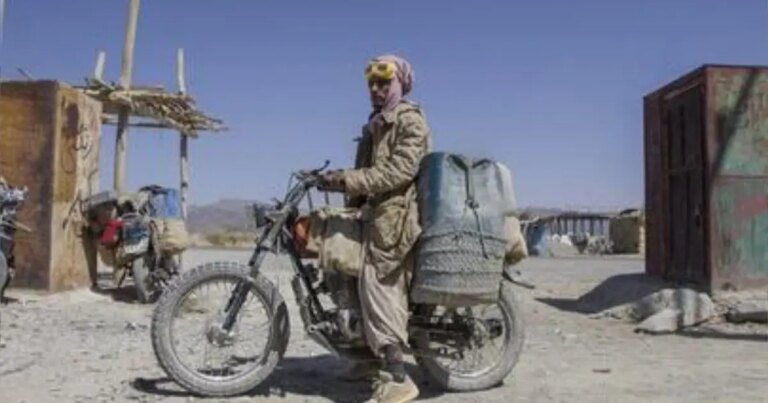Iranian traders smuggle $1 billion worth of fuel into neighboring Pakistan every year.
A 44-page Pakistani intelligence report reveals “Iranian oil smuggling”, a years-long illegal trade that escalated in the wake of sanctions imposed by the United States on Iranian oil exports a decade ago.
The sanctions forced the Iranian government to seek alternative markets, leading to a significant increase in smuggling activity across the 900-kilometre Iran-Pakistan border.
The report reveals that about $1.02 billion worth of Iranian gasoline and diesel was illegally transported to Pakistan last year alone, accounting for about 14% of Pakistan’s annual fuel consumption.
This smuggling has caused significant financial losses to Pakistan’s Ministry of Finance, with losses in taxes and duties estimated at approximately $820 million, and has also negatively impacted local oil operations.
Approximately 2,000 vehicles are involved every day. fuel smuggling Cross-border attacks continue despite rising military tensions between Iran and Pakistan, including mutual attacks earlier this year.
The socio-economic impact of a potential trade suspension would be particularly severe for residents of Balochistan, Pakistan’s poorest region, which is plagued by a violent separatist insurgency.
The report shows that around 2.4 million people in Balochistan make a living from this illegal trade, with few other economic opportunities.
Additionally, the report, which was leaked to local media, names more than 200 people involved in the smuggling operation, including government and security officials, and highlights widespread corruption and collusion at border crossings. There is.
“A culture of bribery and acquiescence” [security] The authorities’ relationship with smugglers is largely continuous. [border checkpoints],” said.
Officials, speaking on condition of anonymity, hinted that the leak of the report could be a strategic move by the government to justify a crackdown on future smuggling activities. However, skepticism remains about Islamabad’s efforts to fully address the issue, given past discrepancies in enforcement activities.
lack of employment opportunities And government inaction in Iran’s impoverished Sistan-Baluchestan province is a major factor driving Baluch residents into fuel smuggling. For many in the border region, selling fuel to Pakistan is an important source of income, offering higher profits than the domestic market offers. This trade serves as one of the few means by which residents earn a living.
Every year, fuel smuggler shooting Hundreds of people are killed in attacks by Iranian forces. According to the report, from March 20 to March 30 alone, 27 fuel smugglers lost their lives due to security force actions, road accidents, and vehicle fires. Most of the victims were young people between the ages of 18 and 28.
In 2023, at least 172 Baluch fuel smugglers were reported killed and 42 more injured.

